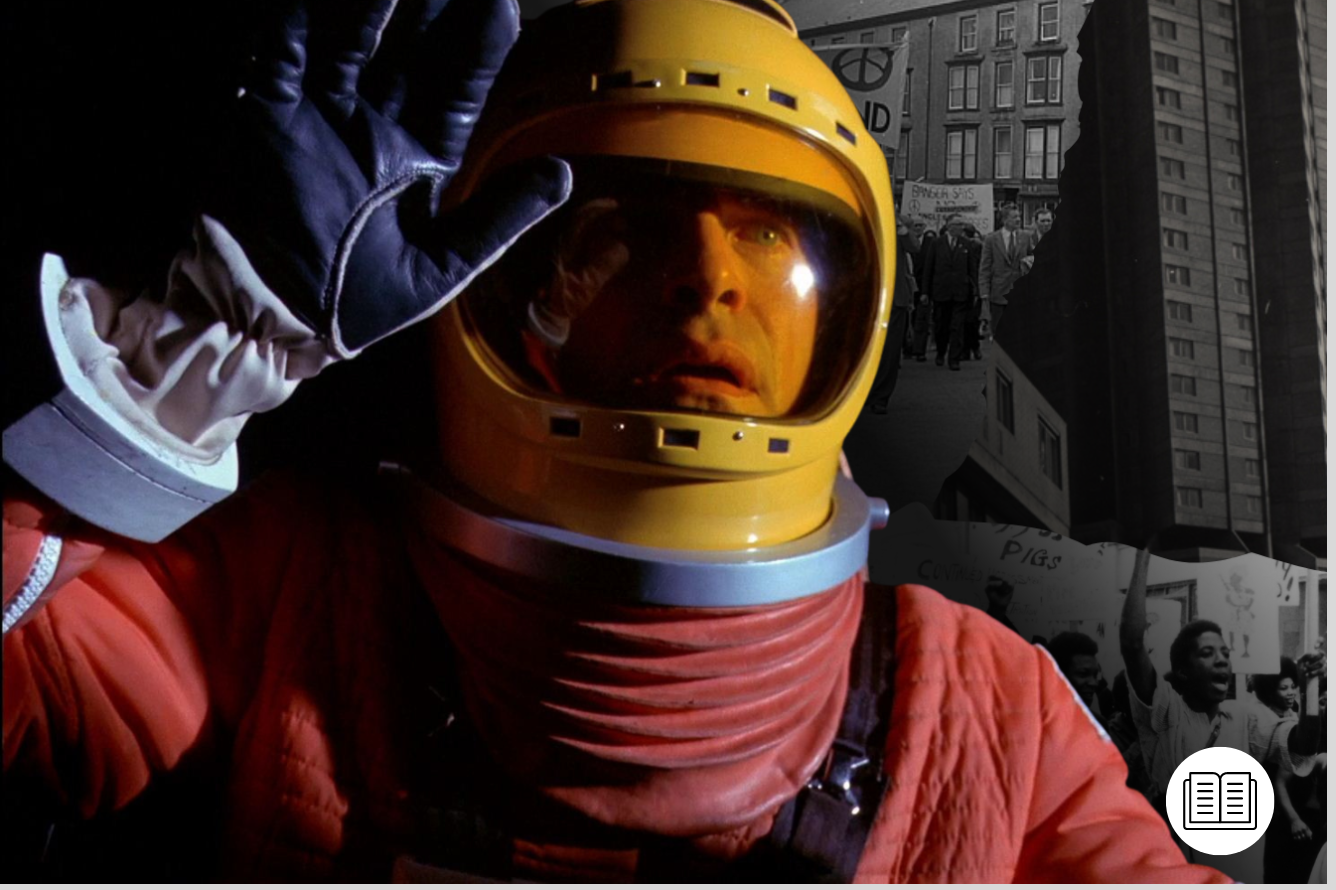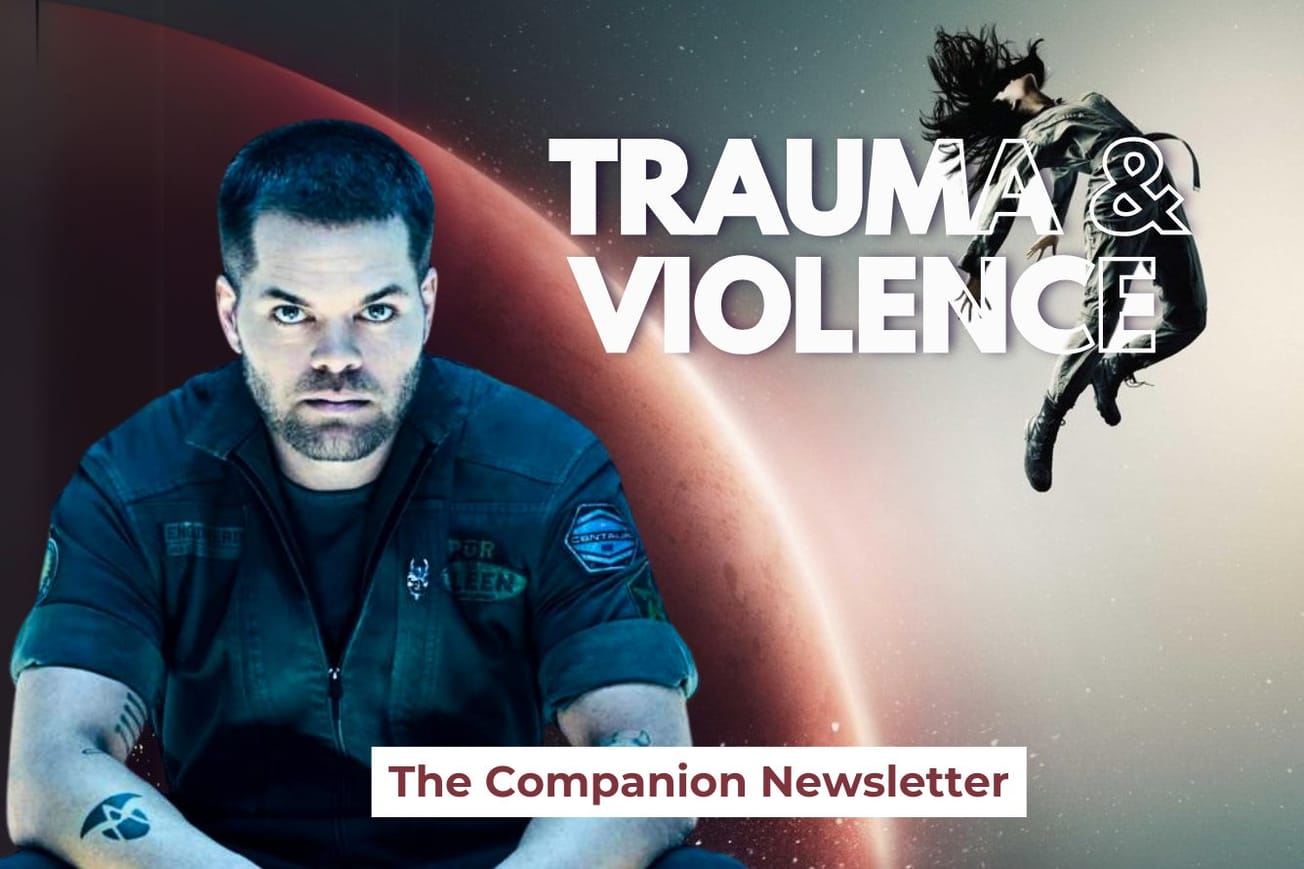“We are Mankind. We came from planet Earth, and we built this base, called Alpha, to learn more about space. But human error blasted this Moon out of the Earth’s orbit. And so, we have travelled the Universe searching for a place to live.”
The science-fiction of the 1960s is, culturally, defined by its optimism—largely due to Star Trek: The Original Series. The combination of the successful space program, an opening out of political ideals, and innovations in televisual technology led to a spree of hopeful television wherein people get rescued, the day gets saved, and allegories are made.
Across the pond, this can be seen in the creations of Gerry Anderson as much as anywhere else. Anderson’s creations, from Supercar to Thunderbirds to The Secret Service defined many childhoods, positing an uplifting and technologically advanced future. However, as the ’70s drew on, Anderson went into darker territory: the existential terror of Space: 1999.
Set on Moonbase Alpha, the series (1975-1977) followed the fight for the survival of the 311 inhabitants after a nuclear waste explosion throws the Moon out of Earth’s orbit and into deep space. The opening episode immediately undercuts Star Trek-style optimism: humanity is preparing for another great leap into the unknown by exploring the planet Meta, but is unable to go due to the sickness of its pilots. Our eventual protagonist Commander John Koenig (Martin Landau) knows many of these pilots and watches their brain-dead bodies in the sickbay in horror.
The base’s current commander, Simmonds (Roy Dotrice) wants to press ahead with the mission, prioritizing success over human lives. As shortly after the Moon is flung out of orbit, leaving the Earth as a casualty, it is likely they never got to perform that mission. The crew of Moonbase Alpha, out of control and hurtling towards an unknown with dwindling supplies and desperation, are Space: 1999’s style of astronaut.
The State of the UK in the 1970s
Not only are the Alphans thrust away into a cold and uncaring universe, but there is an implication that even if they could return home, Earth would not be as they remember it. One of the last communications between the Moon and Earth has a news reporter describing horrendous disasters caused by the explosion, and by the Moon leaving Earth’s atmosphere, essentially preventing all of its regulating effects. The horror then extends outside of the Moonbase, taking into account the friends, families, and normality of its personnel.
The first figure given for Alpha’s population is 311: but this discounts the deaths on Alpha pre-Breakaway, as well as those suffered during the 13th of September. Indeed, before we even meet our central cast eight men have died, a total which will only increase episode on episode. The population on Alpha varies from 272 to 297 between series. Births are controlled on Alpha, as “we can barely support the people we have” (‘The Exiles’ – S2, Ep2). Similarly, unlike the endless parade of ‘Red Shirts’ in Star Trek, each loss of a random extra crewmember in fact had an impact due to the scarce resources and personnel of the base.

As a result, the series immediately took a bleaker look at the realities of the space program, which is expensive, and dangerous (Moonbase Alpha, rather than being humanity’s last defense against alien invaders, is essentially a dump), and mismanaged by little men with big egos. Like on Battlestar Galactica or Star Trek: Voyager, our crew are isolated, desperate, and faced with no certainty in their future of ever finding a home (the Earth or elsewhere).
As Samira Ahmed writes in an article for TV Years magazine in 2019, the show presented the under-12s with “lush spaces visuals, bleak, existential plotlines [and] a visual horror.” Dr. Kevin Fong takes it a step further in the same article, calling the series an “electric heater in the bath.” The moon is further pushed out beyond Earth by passing through a black hole and later some ‘space warps’—truly plunging into territory where “no man has gone before,” but without the security of a Federation at their backs. The crew is on their own.

These grim origins, and their impact on the remainder of the series, clearly reflect the context of the 1970s, a decade that, at least in Britain, became synonymous with bleakness. As academic and podcast host Rodney Marshall writes in the introduction for an upcoming book on the television of the decade, Survival TV:
“In many respects, it is remembered for economic decline, unemployment, financial crises, strikes which led to a succession of State of Emergency situations. Some of those strikes left people literally in the dark, resulted in rubbish building up on the streets, panic buying in the shops, commercial television off-air for nearly three months, The Times newspaper disappearing for almost a year, even bodies left unburied. Until a deal was done with the IMF, the nation was on the point of a bankruptcy which the rest of the developed world frequently commented upon. In 1971, Home Office figures indicated that violent crime was, indeed, increasing by an alarming rate.
“By 1970, 1.5 million Brits were stuck in post-war tower blocks, many of them shoddily-built in isolated locations far from amenities. While initially some people understandably greeted these ‘streets in the sky’ as a radical improvement, the buildings were often poorly maintained and rapidly deteriorated.
“The result was frequently what Dominic Sandbrook calls a ‘brutal concrete reality’ which often brought with it intimidation, violence, vandalism, litter, graffiti, and social isolation. The high-rise ‘utopian’ vision of architects could rapidly become a grim dystopia.”

Energy crises, a financial crash, miners’ strikes, incredibly high inflation, high emigration, and population dissatisfaction form the context for the production of Space: 1999. In short, the uplifting positivism of the 1960s, so clearly captured in Star Trek and other American shows of its ilk, was being undermined by the grim reality of day-to-day life in Britain. These events even had a material impact on the show, as the first 24 episodes were completed over a lengthy fifteen-month period, primarily due to a series of industrial disputes and power shortages that characterized the mid-1970s.
The Influence of the Cold War on Space: 1999
The show also reflects the fears surrounding the Cold War, as with much sci-fi of the era: the “existential battle of life and death with an alien invader, the threat to humanity, the fears of totalitarian regimes, the technological race for supremacy […] and a very militaristic view on society, with heroes who tended to be undisputed commanders.” The initial disaster also prefigures many ecological fears, dealing as it does with the incompetent politicians mishandling a nuclear waste dump, causing catastrophic damage across the globe.
Moonbase Alpha itself seems to reflect the difficult politics of the mid-70s: coming out of the optimistic 1960s into a harsher world, so is Moonbase Alpha both intended as a research station based around the mission to Meta for humanity’s survival, but must also act as a monitor for a nuclear waste depository, which began to accumulate significantly following a thermonuclear war and peace treaty in 1987. Thus, the limitations of Alpha, and its eventual collapse, are directly linked to fears surrounding the Cold War and reflect the increasingly pragmatic politics of the era.
However, the truth is that in terms of bleakness, Space: 1999 wasn’t actually as far from previous Gerry Anderson properties as might be thought. Even the most positive, such as search-and-rescue drama Thunderbirds, were influenced by tragic events from the creator’s own life (the death of his pilot brother, Lionel, during the Second World War), and as the Sixties drew on, Anderson properties continually leaned into darker territory. The basis of Captain Scarlet is that a man dies, is resurrected by aliens to destroy his friends, and then breaks free of his programming in order to fight back, whilst being able to die and come back to life eternally: an existential dread-inducing concept if there ever was one.
These fears of depersonalization would further play into Space: 1999’s forerunner, UFO, which dealt with aliens attempting to rob humans of their body parts, and frequently involved terrors from mind control to claustrophobia, as well as ruthlessly killing off the son of its lead character due to the conflict of duty vs. personal life. Grim stuff. Add into this the fact that the creative partnership and tumultuous marriage of Gerry and Sylvia Anderson were breaking up, and the bleakness and existential tone of the series become more understandable.

In fact, from here on in, Space: 1999 also explores themes of depersonalization and body horror. Across the two series, a remarkable amount of crewmembers are mind-controlled or mentally influenced by aliens, causing them to kill themselves or others. In only the second broadcast episode, ‘Force Of Life’ (S1, Ep2), Anton Zoref (Ian McShane) becomes an energy-draining entity that attacks Alpha, and although the creature he has become departs, Zoref the human being is gone: his personality stripped away from him by forces beyond his control. As a heat-sucking vampire, Zoref also freezes multiple crewmembers to death, before being killed and resurrected as a zombie lurching towards Alpha’s nuclear reactor.









